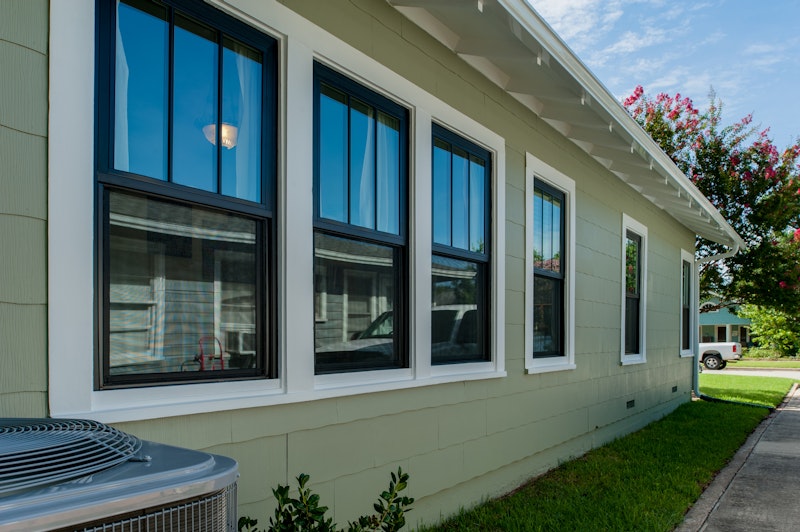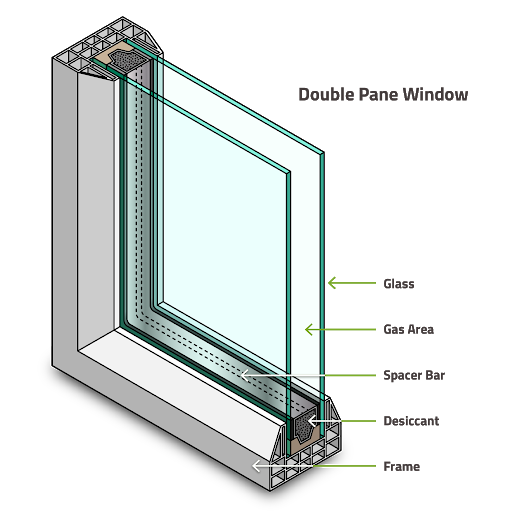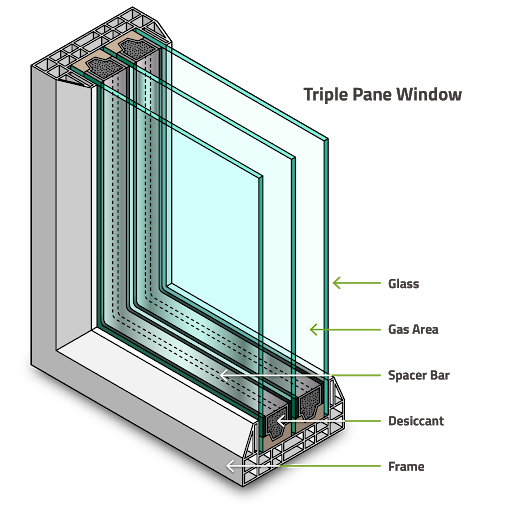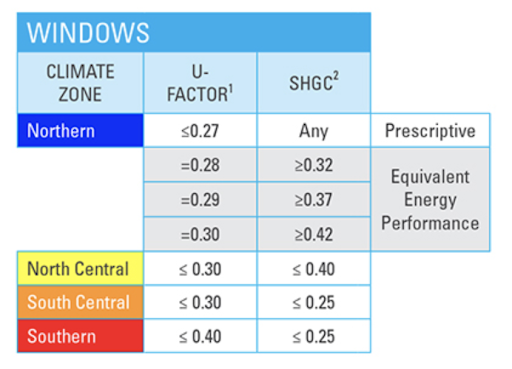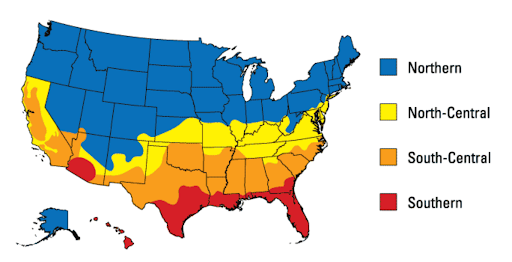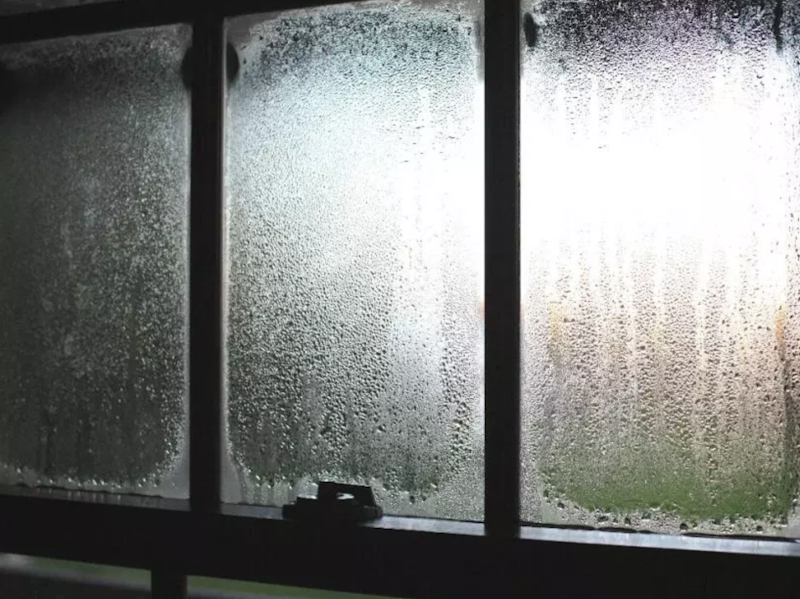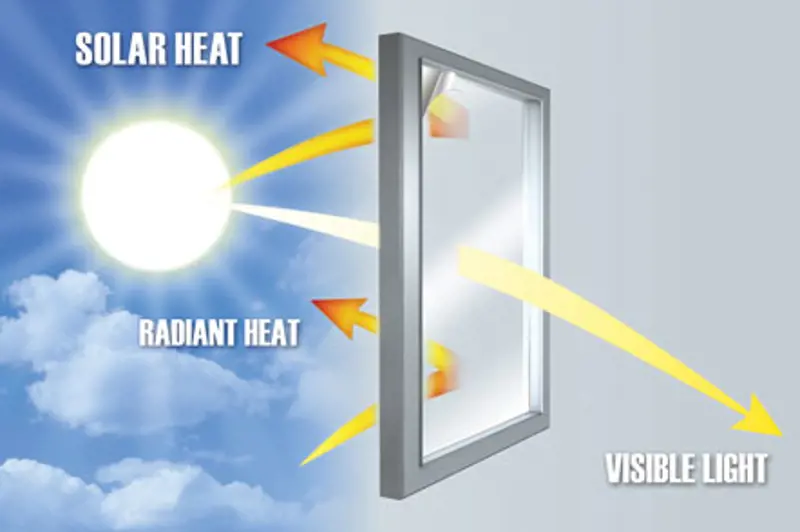
What Are Insulated Glass Windows?
No one should have to worry about spending exorbitant amounts of money on energy costs every month just because no one told them their windows play an integral role in keeping their home warm in the winter or making sure that AC doesn’t escape during the hot summer months.
You may have wondered: Why do my windows get foggy at certain times of day? Why is this room always so cold or so hot? Is it normal to feel a chill when walking past your windows?
If you’re asking yourself these questions, your windows probably don’t have any insulation value. A sure way to solve these window problems is by replacing the existing windows.
But this isn’t just any purchase! You want your windows to be like your home: built to last and function so you don’t have to worry about calling the handyman every week or your bills surprising you every month— in a bad way.

Today we want to share what we know as one of the tried and true ways to protect and insulate your home effectively: Insulated Glass windows, or as we refer to them in the window industry – Insulated Glass Units (IGUs).
Topics covered in this post (feel free to jump ahead):
What is an Insulated Glass Unit?
An Insulated Glass Unit (IGU) combines many panes of glass with spacer material and gas sealed in a frame into one window system. The multiple panes of glass and gas add extra barriers to heat and cold transfer. Old industry standard practice was to fix one pane of glass into a frame to make a window, so the only barrier between your home and the outside environment was a single sheet of glass. We know this has no insulation value. In fact, when researching windows, you may find that it’s harder to find single pane units for this very reason. They still exist, but they don’t meet energy standards and they shouldn’t be used on your home. If anything ,consider saving that option for a detached garage or shed. They sit on the shelves like dusty old artifacts. Yikes.
Here are some of the industry terms regarding the components of an IGU that we think you should know:
- Glass - Sheet glass made suitable for windows. Available in a variety of thermal or chemical treatments including coatings, laminations, and as tempered (to increase strength).
LEARN MORE: Types of glass used in residential windows and doors - Glaze - Often used interchangeably with glass. Can also refer to putty used as a weathertight sealant between the glass and frame
- Gas - Argon or Krypton gas added between the panes of glass in a window unit for added thermal efficiency. Both are colorless, odorless, and non-toxic.
LEARN MORE: Argon vs Krypton Gas - Spacer Bar - Separates the glass to the appropriate distance and absorbs stress caused by thermal expansion. Usually metal. Provides a tight seal to hold in gas and acts as a moisture barrier. May also include desiccant to further discourage moisture.
LEARN MORE: Types of Window Spacers - Desiccant - A desiccant is a substance that absorbs moisture from the air typically used to sustain a state of dryness in its vicinity
Types of Insulated Glass Windows
If you have older windows, chances are they are aluminum framed windows with single-pane glass. Those are costing you money. Double pane windows are now the industry standard, they provide the space needed for the insulating gas in IGUs. In addition to double pane windows, triple pane windows are increasingly common, learn more about the two below.
Double Pane IGUs
This is a window system with two glass panes separated by a gas. There’s an interior pane and exterior pane with Argon or Krypton gas filled into the space between. In the world of residential IGUs, these are the most common. IGUs eclipse single pane windows inefficiency and are designed to reduce both energy costs and outside noise. Another great benefit IGUs offer is that they prevent 25 percent of the sun’s heat from entering your home, protecting you from glare and UV rays that can damage your home furnishings.
Triple Pane IGUs
This is a window unit that contains three panes of glass. There’s an interior pane, an exterior pane, and a pane between those two. Gas is filled into the spaces between interior and exterior panes. Triple pane windows are more resistant to condensation and are recommended for homes in colder climates. Triple pane windows can be worth the additional cost if you plan to live in your house for fifteen to twenty-five more years. Or if you just hate anything remotely close to a cold draft in the winter, go for the triple pane window: it’ll give you extra insurance against cold air seeping inside.
Deciding between double-pane and triple-pane windows?
LEARN MORE: Double Pane vs Triple Pane Windows
Types of Gas Used in Insulated Glass Units
Inside the sealed frame and in between each pane of glass in the IGU are inert gases, typically Argon or Krypton, that help to slow heat conductivity better than air because of their dense qualities. The majority of new construction and replacement windows are filled with either of these gases. Krypton gas is often regarded as the best gas, but Argon gas is more common and more affordable. However, Argon still has significantly lower heat conductivity than air as you can see in the chart below.
The decision between Argon and Krypton gas (when the choice is available) really comes down to where you live and how much value you’ll get out of the investment. For us in Texas, Argon gas works just fine.
|
Gas Type |
Thermal Conductivity |
|
Air |
.0240 |
|
Argon |
.0160 |
|
Krypton |
.0093 |
Are Insulated Glass Units Worth it?
Insulated Glass Units beef up the barrier between your home and the outdoors. It’s like home security except to help you defend against everything from snow and storms to blazing heat.
Benefits of IGUs
The extra layers of glass along with the dense gas in an IGU help to resist heat and cold transfer. The units also curb heat-producing solar rays. So, a west-facing IGU with extended sun exposure won't heat up nearly as much as a single pane unit. Your heating and cooling system won’t need to work overtime to maintain your comfort. Also, you’re doing your part for a cleaner earth as IGUs reduce the carbon footprint and noise pollution of your home.
Several official metrics help to determine a window's performance. The two you should care about are Solar Heat Gain Coefficient (SHGC) and U-Factor.
- SGHC- This measurement describes a window’s ability to block heat producing solar rays on a scale of 0 to 1. The lower the rating the better the window is at blocking solar radiation and the less solar heat the window transmits.
- U-Factor - Also referred to as U-Value. Measures a window’s ability to reduce heat and cold transfer on a scale of .20 to 1.20. A lower rating indicates better resistance to thermal heat flow and greater insulating properties.
These metrics for heat and cold transfer as well as efficacy in blocking solar rays are important because they are what ENERGYSTAR↗, a program run by the U.S. Environmental Protection Agency and U.S. Department of Energy that promotes energy efficiency, use to outline energy efficiency recommendations in all four US climate zones:
Meeting Energy Codes with Insulated Glass Windows
To pass inspection, windows need to meet certain energy standards. ENERGY STAR generally sets the highest standards, if your windows meet ENERGY STAR criteria you’ll likely meet your local energy codes as well.
In order for a window to be considered ENERGY STAR certified in North Texas, it needs to have both an SHGC of 0.25 or less and a U-factor of 0.30 or less. Reference the chart above to see ENERGY STAR requirements for different US climate zones.
So Who Sells Insulated Glass Windows?
If you’re looking for replacement windows in North Texas, consider these ENERGY STAR-approved window lines for the South Central region. Below are two popular options among our clients, to see more options visit our windows product catalog here
Additional Considerations for Insulated Glass Units
I’m sure you know at this point that windows are not cheap! The price tags correlate to the value they can add to your home, endurance, quality, and energy-saving aspects that are included as well. That being said, they should be handled with care-- don’t let the inexperience of an amateur installer ruin your new windows or house with improper sizing, chips in your home exterior, or cause long-term damage with moisture and leaks due to a poor installation.
Proper installation of a window has a significant impact on how it performs. Insulated Glass Units are no different. Improper sealing of IGUs can lead to a number of issues including window fog and escaped gas. The amount of Argon or Krypton gas found in Insulated Glass Units are non-toxic, but a large portion of the insulation power lies with these gases. It isn't ideal for it to escape and reduce the value of your brand new unit. This can happen with seal failure, so the best way to avoid leaks is with quality, professional installation.
If you truly want to reap the energy-saving benefits of IGUs, installing just one in your home probably doesn't make a huge difference as heating/cooling has the opportunity to escape through other windows and other parts of the building envelope. You may need to replace many of your old windows at the same time. This leads to our next consideration: pricing.
How Much do Insulated Glass Windows Cost?
IGUs contain a couple of extra materials that traditional single pane glass doesn’t have. It makes sense that double and triple pane window units are priced slightly higher.
As a case study, we'll look at a Brennan Traditions window. This pricing is for a standard size window unit without the cost of installation:
- Single-hung window in white with a high-performance double-pane unit: $545.
- Single-hung window in white with a high-performance triple-pane unit: $622.
Imagine you have a house full of single-pane windows, now replace those windows with the double or triple-pane option and your home will feel significantly different. You’ll likely start seeing a return on your investment in terms of energy savings within the year. Not to mention the obvious: home improvements add significant value to your home. Insulated Glass Units, with their energy-saving properties, can help increase the resale value of your home.
Insulated Glass Units are a great option for a more energy-efficient home. Additional glass panes and gas offer double the protection against the elements. Less heat/cold transfer means less reliance on your HVAC system for temperature regulation. That’s more money in your pocket.
Oops!
We don't currently serve your area but do want to help you plan your project. Try our Build & Price tool to get an idea of window & door costs within DFW. Your area may be higher or lower but at least you'll have some idea of the price.
Thanks for stopping by.




